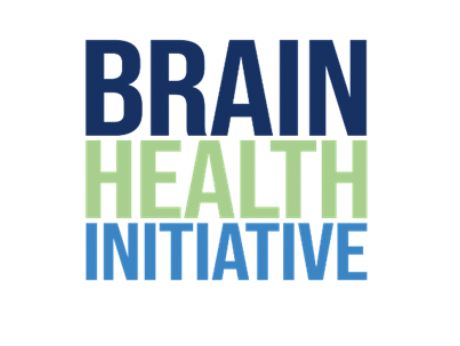What's the Difference Between Normal Forgetfulness and Signs of Alzheimer's?

Image: SHUTTERSTOCK
The Brain Health Initiative in Lakewood Ranch held an event on Tuesday, May 18, to honor its Brain Health Scholars Program, which involves more than 60 local high school students who volunteered their time with the initiative over the last year. Each scholar learned to keep their brains sharp and healthy when moving on to college and a career. The keynote speaker was Dr. Lisa Genova, a Harvard graduate, neuroscientist and New York Times bestseller, with books like Still Alice, which was adapted into an Oscar-winning film.
Genova's recent book, Remember, explains to readers how forgetfulness is a normal part of life. She details how factors like sleep, stress and emotion and context can impair memory formation, storage and retrieval. In her talk, she explains the three differences between normal forgetfulness and the early warning signs of Alzheimer's disease.

Dr. Lisa Genova
Image: Courtesy Photo
"There are three kinds of forgetting that are totally normal whether you are 20 or 80 years old," says Genova. These are:
1. Episodes where you ask yourself, "where did I put my...?"
This can refer to when you misplace items easily and instantly blame your memory. Genova says 99 percent of the time, you didn't forget anything. You are just distracted. You weren't paying attention to where you set down your glasses, keys, etc. in the first place. "Paying attention is the first necessary ingredient in creating memory," says Genova. "It is going to last longer than in the present moment. You cannot remember later what you don't pay attention to now."
2. Episodes where you forget names of people or things.
Genova says this happens to all of us. Proper nouns are more difficult for our brains to remember than common nouns. This has to do with the neuro-connectors involved in remembering these things. "When the name feels like it's on the tip of your tongue, there's another reason why you get to it," says Genova. "Along the way, you come up with loosely related words, therefore focusing on the wrong target." This is a byproduct of how our brains are organized, and there is no harm in Googling the answer.
3. Episodes where you say, "why did I come into this room?"
You may think your memory is failing you, but it's normal. This experience has to do with perspective memory, or what you plan to do later. "These memories are really tough for human brains unless the right cues are available at the right place and time," says Genova. "Outsource this job by making to-do lists or writing everything down. Unless the habit is already engrained in your brain, you are going to forget it." If you forget why you are in a room, go back to the previous room in your house and look around for context clues. You'll most likely remember what you were searching for in the first place.
Genova also explain what Alzheimer's symptoms would look like in these scenarios:
If you lose your car the in parking lot, find it, but don't remember how you got there, it could be cause for concern. Or, if you're standing in front of your car and don't recognize it, or don't remember how to use it. If you've misplaced your phone, keys, etc. and once you've found them, forget how to use them or what they are for, this can be an early sign of Alzheimer's.
Keep in mind that lapses in memory could also be related to other health issues like lack of sleep or B12 deficiency.

Brain Health Initiative logo.
Image: Courtesy Photo
What are the things we can consider when keeping our brains healthy and fighting the risk of Alzheimer's disease?
1. Sleep.
"If you are frequently feeling foggy with respect to memory and forgetting things out of the ordinary, take a look at your sleep patterns," says Genova. Chronically sleep- deprived people will experience what's like amnesia and dementia. We are biologically busy when asleep, so we need 7-9 hours, in order for our hippocampus, or the place that stores memories, to fully consolidate the memory information.
The frontal lobe will also have a hard time paying attention and retaining information the day after a poor night's sleep. When you are sleeping, cells in the brain called glial cells, or janitors of the brain, clear away any metabolic debris and amyloid plaque buildup. Genova says when this buildup reaches a tipping point, around 15-20 years of accumulation, that creates a runaway train that is Alzheimer's. Getting enough sleep will help prevent this.
2. Regulate caffeine intake.
Caffeine is actually really good for the memory. It increases attention throughout the day, thereby boosting memory. But be careful when you are caffeinating, in order to get proper sleep.
3. Decrease the temperature in your room a few degrees.
A cooler room will make for a better night's sleep.
4. Avoid alcohol to get to bed.
Alcohol does not aid sleep and can interfere with REM sleep, the portion of deepest, restorative sleep.
5. Write down your thoughts before sleep.
Writing down what you are worried about before heading to bed can help clear anxious thoughts that keep us awake at night.
6. Eat for heart and brain health and exercise daily.
A brisk walk four times a week can be just enough to help reduce the risk of Alzheimer's.
7. Learn new things.
Staying cognitively and socially active are important for keeping the brain stimulated through all phases of life. Learn a new language or explore a part of town you never have before. Talk walks in new areas, or with friends, or pick up a new hobby.
While Alzheimer's is typically a genetic disease, there are ways that you can alter your lifestyle to help prevent the severity and risk of the disease in your life. Making small changes every day, and understanding that a little forgetfulness here and there is normal, is a big part of the process of keeping our brains sharp.
To learn more about the Brain Health Initiative, click here. To find Dr. Lisa Genova's work, click here.



